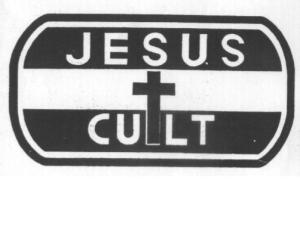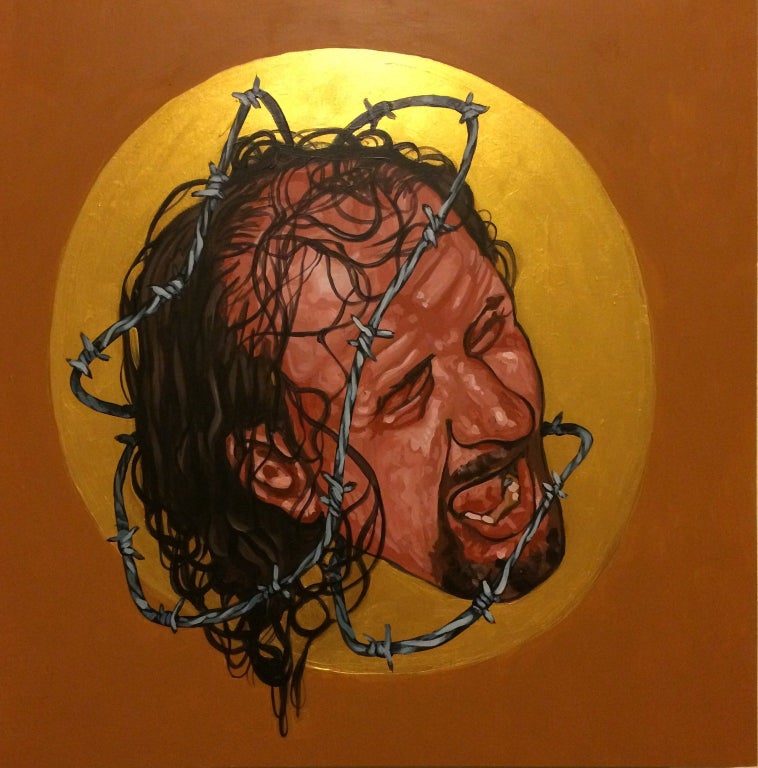 I finally got around to seeing Jesus Camp, or as I like to call it, “Children of the Corn.”
I finally got around to seeing Jesus Camp, or as I like to call it, “Children of the Corn.”
It’s well worth the watch. And it made me sad. And a bit embarrassed.
I get the criticism that the documentary makers are biased. Bias will always exist; a purely objective perspective is a unicorn.
But this is scary.
It’s about as scary as the person who came up to me the other day and told me a story of how an individual from a neighboring church here in the city tried to convince him that we (as in, my faith community) were teaching him falsely, and that he should come and find the truth at this other faith community.
A “truth,” by the way, that doesn’t allow for questioning…because it is ultimate. Apparently they have it over at that church. Good to know…
In the book Narcissists Among Us, author Joe Navarro lists a number of traits that one should look for in a leader to tell if they’re a cult leader. Unfortunately, many Christian churches have turned Jesus into a character that fits many of the descriptions.
For instance, at the top of the list is that a cult leader has “a grandiose idea of who s/he is and what they can achieve.” Now, this gets fishy, of course, because of the Christian tenet that Jesus is both mortal and Divine. I’m not questioning Christ’s divinity at all. But when we look at the Gospels, we have a very quiet Christ in most instances, one who doesn’t lift himself up but rather lifts up those around him.
Fast forward two thousand years. Today you’ll find in many places people who claim that Jesus can cure your broken bones, broken marriage, broken spirit, and broken bank account (all for $19.99) if you just believe.
Or take another example of a cult leader from Navarro, the fact that they are preoccupied with unlimited success, power, or fame. Can we not turn on the TV most any evening and hear how God desires this for us? Can we not read most “Christian” self-help books and read about how the right formula of life+belief+prayer=blessing?
How about the fact that many churches are now holding these bizarre “purity balls” where young women (notice that it’s only young women…sexism is alive and well, don’t you worry) pledge their virginity to their fathers? Sexual exploitation is the sign of a cult leader and, despite the fact that Jesus says not a mumblin’ word about sex (though he does talk about divorce), much of Christianity has turned these purity rituals into a rite of passage as a way to control behavior.
Look, I think that the church has to come up with a good sexual ethic (please, Lord, let’s revisit this, yes?), but such manipulation a) doesn’t work, b) is slightly creepy and c) causes confusion in children with regards to sex, sexuality, and their bodies.
And what about the one I see most frequently: the need for blind obedience? Cult leaders demand this of their followers. In Jesus Camp, there’s a really telling scene at the end where Mike Papantonio, radio personality, is interviewing a woman named Becky Fischer, a self-proclaimed “children’s evangelist,” the leader and host of this crazy camp where children come to be guilted, manipulated, and formed into “soldiers for Christ” (their term, not mine). And in the interview Papantonio brings up the idea that Fischer is actually indoctrinating the children, to which Fischer responds that she’d like to see more parents and churches indoctrinate children.
When I teach Confirmation and encourage the youth to memorize the Apostle’s Creed, the Lord’s Prayer, and the Ten Commandments, we follow up every statement with the good (Lutheran) question, “What is this?”
And it’s an honest question to which I encourage honest responses.
The church should not be in the indoctrination business. But it has been. For years and years.
Christianity should be a religion, not a cult. Jesus is central to the religion. Jesus is not a cult leader.
There is a difference between a religion and a cult; a religious leader and a cultic leader. I think that many religious leaders, Christian leaders, can become cultic personalities. But, likewise, I think that many religious leaders have turned Jesus into the cultic personality.
A religion is meant to look after the well being of the family, encouraging health in all ways. Cults break families apart, doing psychological harm. Should I say how many people have mentioned to me that they’ve been told by a religious leader that their spouse is going to Hell because they don’t believe/haven’t been baptized/are of a different religion? Need I note the anguish this causes over a subject that no one living has any firsthand knowledge of?
A religion allows freedom of thought. Cults and cultic leaders do not. A religion works within society, even as it tries to change society. A cult shelters people from the greater society, creating a bubble of influence. A religion encourages leaders to be questioned (this is, I think, what the historical critical method does of Scripture as a leader of Christian religion). A cult does not allow a leader, or basic tenets, to be questioned.
Sigh.
Jesus was not a cult leader. It’s clear from the Gospel accounts that he was a compelling personality. It’s clear from the Gospel accounts that those who followed him did so passionately. But the personality profile given there doesn’t fit a cult leader.
So why, then, have many in the church made him one?



 Today I sat down for a coffee at the midway stop between the office and the hospital. It’s become my midway stop mostly because I can take a minute to read there without being too disrupted.
Today I sat down for a coffee at the midway stop between the office and the hospital. It’s become my midway stop mostly because I can take a minute to read there without being too disrupted.




